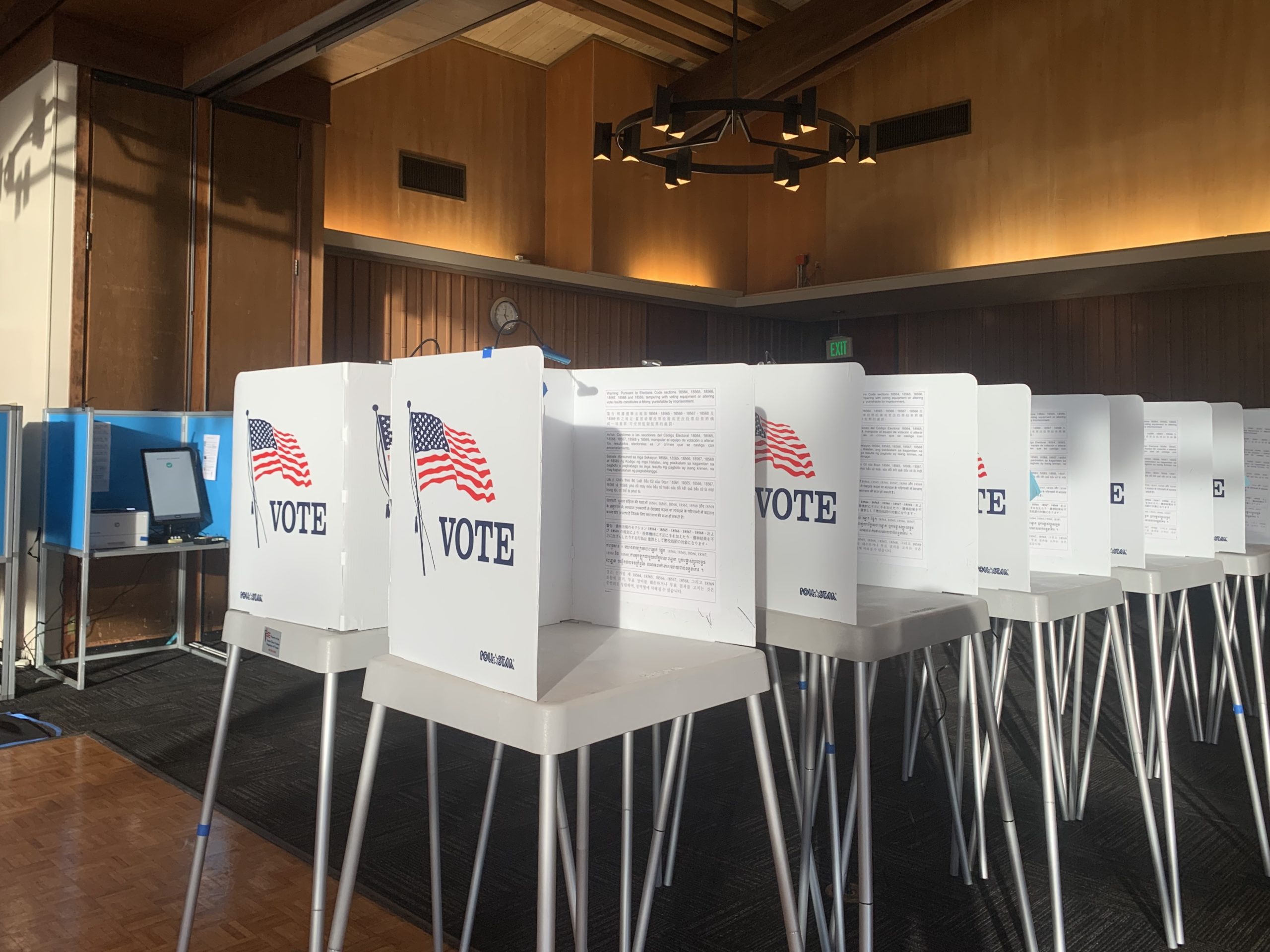The Faculty Senate passed a motion urging instructors to “support civic engagement” on Election Day this year and opened up the possibility of making it an academic holiday in future years on Thursday. The motion is a modification of a proposal to designate Election Day as a “Day of Civic Service,” which passed the ASSU Undergraduate Senate and Graduate Student Council unanimously on Sept. 15 and 16, respectively.
The original proposal was spearheaded by StanfordVotes and the ASSU and aimed to give students, faculty and staff the day off on Election Day. However, due to the short notice and its lack of control over the University calendar, the Faculty Senate modified the original resolution.
Instead of designating Election Day as a campus-wide holiday, the current resolution urges faculty members to “support civic engagement and reflection by students” by cancelling classes and recording lectures on Election Day. It also instructs the Committee on Undergraduate Standards and Policy and the Committee on Graduate Studies to make a recommendation about whether national election days should be designated academic holidays in the future.
Members of the Faculty Senate voiced enthusiastic support for facilitating student voting, increasing civic awareness and signaling that Stanford values civic participation. Ninety-six percent of the Senate’s members voted to pass the motion.
The original proposal for the “Day of Civic Service” focused on three core arguments. The first, that a Day of Civic Service would “strongly signal to the student body that Stanford University values participation in democratic activities.”
Co-Director of StanfordVotes Sean Casey ’22, who said that Stanford “has not been the most politically engaged school,” hopes that a Day of Civic Service would promote the ideas that civic participation and voting are crucial to the community.
Secondly, the writers of the proposal hoped that a Day of Civic Service would act as an opportunity for “a day of community learning, deliberation, reflection, engagement, cross-cultural exchange and democratic activities.” Finally, the proposal states that a Day of Civic Service would “lead to greater voting (and ballot research) among the Stanford community by reducing other burdens on time.” Casey elaborated that a full day of classes and meetings, on top of the pressures that COVID-19 has inflicted, makes it much harder for students and faculty to prioritize voting.
The proposal also acknowledges the importance of giving staff some form of a Day of Civic Service on Election Day. For the November election, regular, full-time employees are given up to four hours of paid time off to vote, according to the Cardinal at Work website. However, staff who work for hourly wages will be sacrificing a portion of their paycheck in order to vote. In the Faculty Senate meeting, political science professor Rob Reich echoed these sentiments, noting that students and faculty members generally have more flexible schedules than staff members.
Casey stressed the distinction of making Election Day a “Day of Civic Service,” rather than a holiday. “It’s not about passively getting time off, but about an active choice to participate in the election, serve our communities and give back,” he said.
Casey hopes that the community will understand that civic engagement encompasses the entire democratic process –– serving as poll workers, ballot counters and election judges, or participating in a day of civic education with workshops, seminars, speakers and watch parties. Such activities, he noted, are open to all members of the community, and not restricted to only those who are able to vote.
ASSU Senator Jonathan Lipman ’21 echoed Casey’s sentiment, saying, “The vast majority of poll workers in a normal year are over 60. Sensibly, many of them are staying home this year because of COVID.”
Lipman pointed to “significant precedent” for making Election Day a campus holiday on other campuses, citing Brown, Columbia and the Stanford Law School as examples. “We really believe that enacting this proposal would be good for students, good for the University and good for society writ large,” he said.
In their presentation to the Faculty Senate, Casey and Lipman emphasized both the rationale for Stanford to make Election Day a holiday as well as the larger implications of such a decision. They cited the University’s Founding Grant, which states that Stanford’s purpose is to “promote the public welfare… and inculcating love and reverence for the great principles of government” as well as its educational duty to foster civic engagement. They also argued that a Day of Civic Service would establish Stanford as a leader and model for peer institutions and help students develop lifelong habits of civic engagement.
Stanford political science professor Adam Bonica, who in 2018 wrote a Washington Post op-ed urging that Election Day be made a holiday nationwide, echoed this argument in an interview with The Daily by describing voting as a ritual. “If you get students started on voting, the likelihood of people voting after they graduate is higher,” he said. “It’s not just this election that matters, it’s setting the precedent for future elections.”
This article has been updated to reflect that regular, full-time staff will receive four hours of paid time off to vote in the November general election. A previous version of this article noted the Stanford Administrative Guide’s allowance of two hours of paid time off for voting, but an interim policy announced on Oct. 2 doubled the allotted time.
Contact Marianne Lu at mlu23 ‘at’ stanford.edu.
